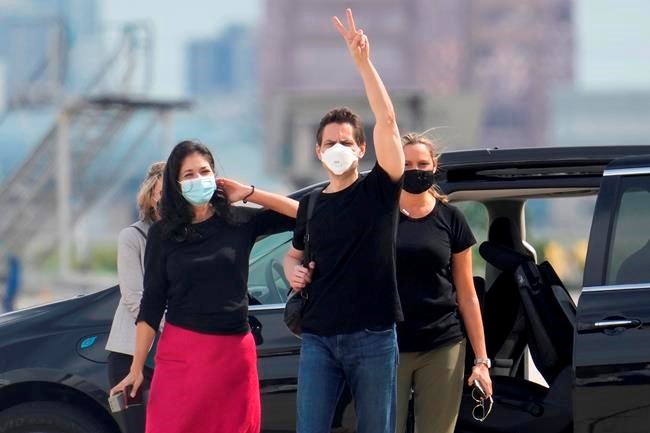OTTAWA — While the return of two detained Canadians has ended a contentious dispute between Canada and China, experts say Ottawa now faces some hard choices when it comes to Beijing.
University of British Columbia professor Paul Evans, one of Canada’s top experts on China and Asia, expects a number of decisions to be rolled out in the coming weeks and months now that Michael Kovrig and Michael Spavor have been returned home.
Among the decisions Evans is expecting is whether to let Chinese telecom giant Huawei participate in Canada’s 5G wireless network, and the extent to which Canadian universities will be allowed to work with Chinese entities.
University of Ottawa professor Roland Paris, who served as Prime Minister Justin Trudeau’s first foreign policy adviser, says the re-elected Liberal government should also move quickly to develop a long-term strategy for dealing with China.
The Liberals promised in their election platform that they would develop a comprehensive strategy for the Asia-Pacific region, which Paris says is long overdue and will be needed to navigate what will be a challenging relationship.
Spavor and Kovrig were released after being held in Chinese prison for more than 1,000 days in apparent retaliation for Canada's arrest of Huawei executive Meng Wanzhou.
Wanzhou was released from Canadian custody Friday after reaching a plea deal with authorities from the U.S., where she had faced fraud charges.
This report by The Canadian Press was first published Sept. 26, 2021.
The Canadian Press




